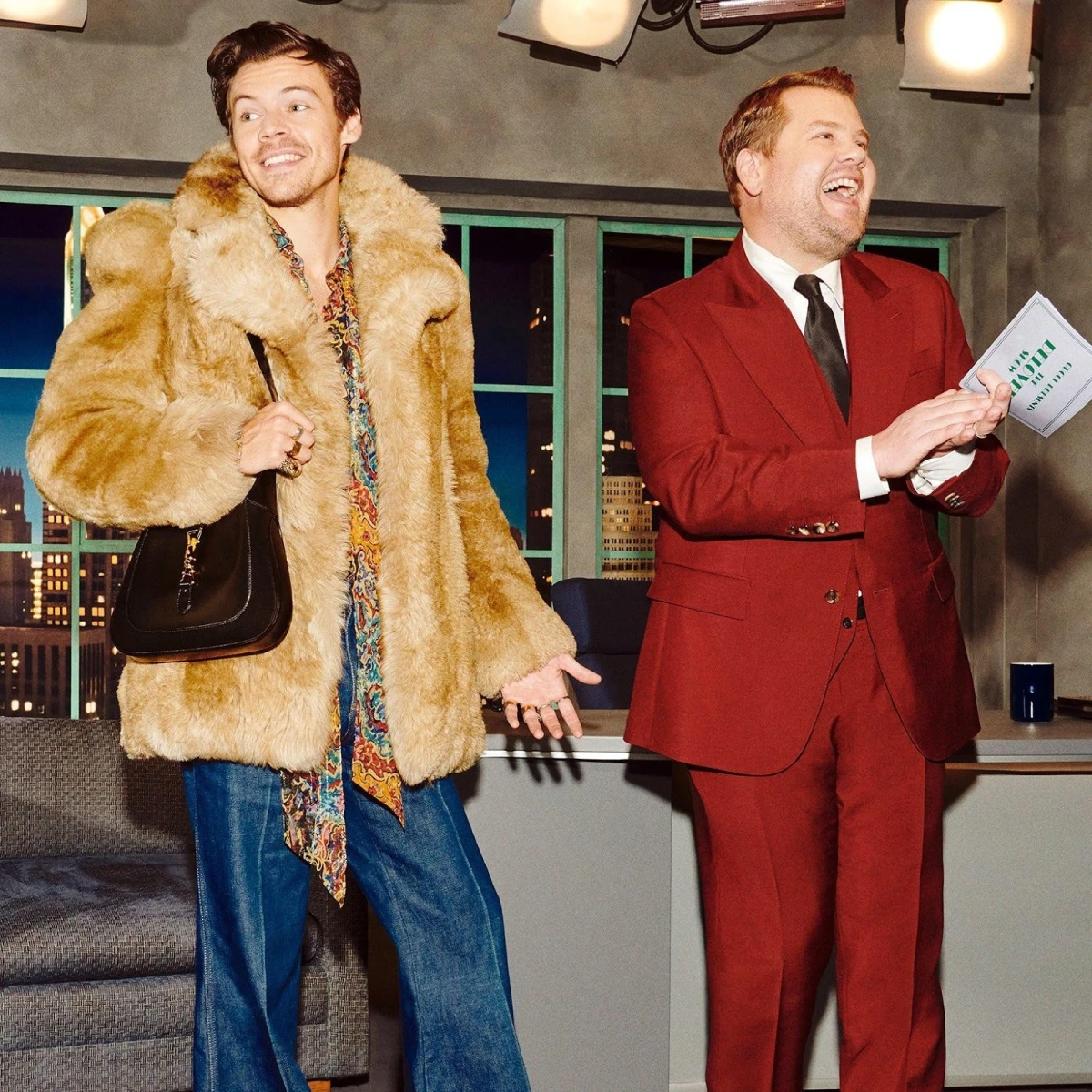For its 100th year celebration in 2021, GUCCI under the creative direction of Alessandro Michele, rolled out its ‘Beloved’ campaign, strategically designed to strengthen the sales of their bags. Initiated on 22nd April 2021, the campaign featured four of GUCCI’s globally beloved bags namely Dionysus, the GG Marmont, Jackie 1961 and the GUCCI Horsebit 1955. The campaign, designed in the form of a late night talk show, had a star-studded lineup which included James Cordon, Dakota Johnson, Harry Styles, Awkwafina, Serena Williams, Sienna Miller and Diane Keaton. The campaign creates a nostalgic talk-show feeling of the 90s where the stars of the show were GUCCI’s four all-time iconic bags themselves.
Luxury brands like Yves Saint Laurent, Cartier, IWC, GUCCI saw a staggering fall in their sales, due to the COVID-19 pandemic. The coronavirus first hit China, spreading to Italy and other European nations (home to many luxury labels). This resulted in a steep fall in the sales of luxury goods, due to Chinese customers accounting for a 35% share in luxury purchases globally. With the pandemic hitting the luxury goods industry all around the world, the impact is expected to be long lasting.
The sales for GUCCI specifically were amongst the worst hit by the virus outbreak due to closure of stores, since China serves as a big market for the luxury brand. In the first quarter of the outbreak in 2020, the sales for the fashion label fell by 23.2%, which makes up for the major revenue for Kering, causing a total fall in its overall sales by 15.4%. However, with its strategic launch of the ‘Beloved’ campaign at the time of ‘unlock’ in Europe, the fashion label is looking to rebound its sales in 2021.
The year 2021 was expected to bring many more opportunities for these luxury labels in terms of rebounding their sales and launching limited seasonal collections. However, the national lockdowns in the UK and other European nations like Germany, Italy and France during the Spring/Easter season, which brings in a plethora of customers for these luxury brands, continued to create anxiety around the sales of goods. Compared to 2020, these luxury brands were better braced to tackle the 2021 lockdown, due to sales and purchases moving to digital platforms. The lockdown also cut down tourist shoppers that contributed massively towards the sales revenue. Moreover, as per VOGUE Business, these international tourists are not expected to return before mid 2022, and the latest lockdowns do not show any improvements in these forecasts.

Image Courtesy: Bloomberg Quint
Since the outset of the pandemic last year, there have also been dramatic and accelerating changes in consumer behaviour and consumption in regards to luxury shopping. Simultaneously, as a result, fashion labels have had to customize products and campaigns to keep up with the market trends and consumer behavior catering to the needs of their loyal clientele.
More and more shoppers have been turning to online shopping in place of in-person visits to physical stores, given the perturbations of contracting the virus. Moreover, according to the Boston Consulting Group, the pandemic has made apparent the deep economic and social inequalities that exist within the society, making less people comfortable with the show of conspicuous affluence and resources, thereby altering their shopping patterns and habits.
Though the pandemic has affected the sales of all luxury brands, certain categories of goods have not seen any decline but rather a spike in their sales. The classic and signature timepieces from luxury labels have been continuing to sell out. This can also be attested by the fact that GUCCI decided to dedicate an entire star-studded campaign to advertise its four all-time classic handbags, that have contributed massively to the label’s revenue.
The increased sales in signature and classic goods can also be credited to the surge in digital shopping which has made these goods accessible to people globally without having to travel. Moreover, these goods are also perceived as great profitable economic investments, with specific products like Hermes Birkin Bags having a 34% Return on Investment as of 2020. Consumers of luxury products are now buying them more with the purpose of investment than mere consumption.
To ensure rebound in sales, luxury brands like Dior, GUCCI, Chanel, YSL have also launched makeup and skincare lines, especially for Spring 2021. This is because makeup and skincare are the two categories of products that have a consistent demand all throughout the year and are more than often remain uninfluenced by seasons and/or holidays.
Looking at the volatile nature of the market given the pandemic, luxury brands will have to globally revamp and strategise the products they plan to release. The few trends that companies will have to look into are sustainable and vegan products, subtle and simple designer wear with less emphasis on gaudy embellishments and logos, inculcating more culturally inclusive and diverse designs and designers in their products as well as in the workforce respectively.
The pandemic, in many ways, has shook luxury brands from their comfort zones, breaking their bubble of consistent revenue and loyal clientele. It has not only challenged them economically but also culturally and socially to produce and create goods by keeping up with the trends in time. Although the pandemic in 2020 might have impacted these luxury brands negatively – especially their revenue and financial stability, it has also pushed them to create more and more culturally inclusive products.
Image Courtesy: GUCCI
Muskaan Kanodia is a junior at Ashoka University, double majoring in English and Sociology. When she is not drowning in books, you can find her drawing and smiling at strangers on the ghats of Benaras.
We publish all articles under a Creative Commons Attribution-Noderivatives license. This means any news organisation, blog, website, newspaper or newsletter can republish our pieces for free, provided they attribute the original source (OpenAxis).

